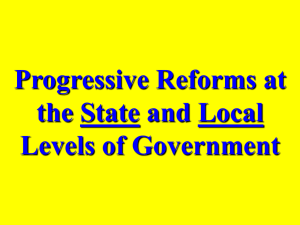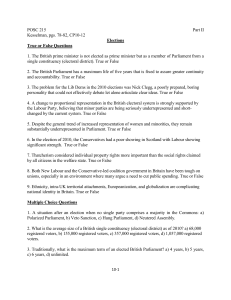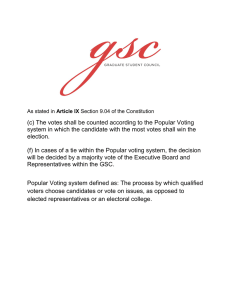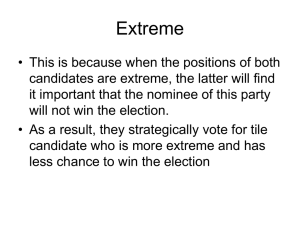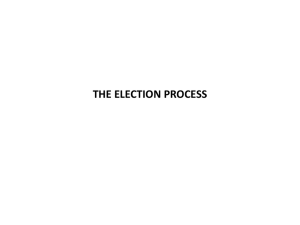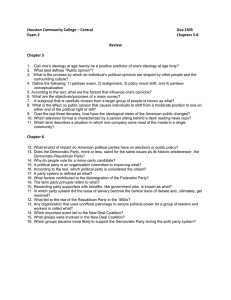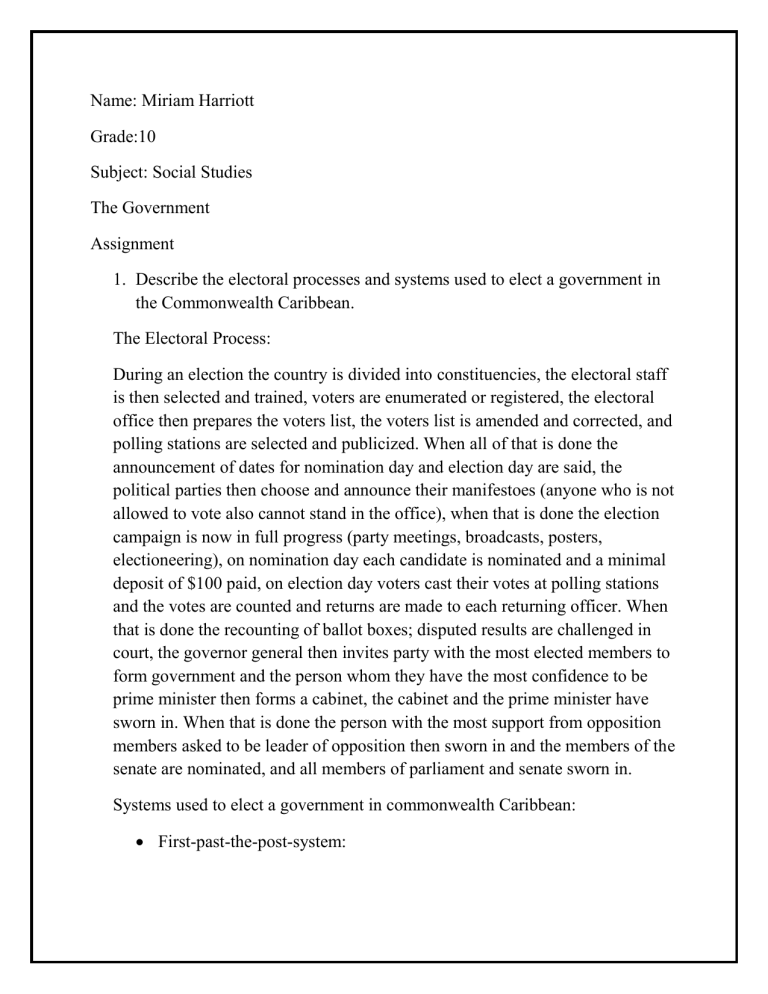
Name: Miriam Harriott Grade:10 Subject: Social Studies The Government Assignment 1. Describe the electoral processes and systems used to elect a government in the Commonwealth Caribbean. The Electoral Process: During an election the country is divided into constituencies, the electoral staff is then selected and trained, voters are enumerated or registered, the electoral office then prepares the voters list, the voters list is amended and corrected, and polling stations are selected and publicized. When all of that is done the announcement of dates for nomination day and election day are said, the political parties then choose and announce their manifestoes (anyone who is not allowed to vote also cannot stand in the office), when that is done the election campaign is now in full progress (party meetings, broadcasts, posters, electioneering), on nomination day each candidate is nominated and a minimal deposit of $100 paid, on election day voters cast their votes at polling stations and the votes are counted and returns are made to each returning officer. When that is done the recounting of ballot boxes; disputed results are challenged in court, the governor general then invites party with the most elected members to form government and the person whom they have the most confidence to be prime minister then forms a cabinet, the cabinet and the prime minister have sworn in. When that is done the person with the most support from opposition members asked to be leader of opposition then sworn in and the members of the senate are nominated, and all members of parliament and senate sworn in. Systems used to elect a government in commonwealth Caribbean: First-past-the-post-system: A country is divided up into constituencies. A candidate is nominated for election in each constituency. The candidate gaining the most votes wins the election and gets a seat in parliament. The party that wins the most seats wins the general election and forms the government. The opposition comes from the party with the second highest number of seats. If no party wins an outright majority there is a hung parliament Proportional Representation: The whole country is treated as a single constituency. A list of candidates is prepared by the political parties based on the number of seats in Parliament. People vote for a party rather than a candidate. Seats in Parliament are awarded to a party based on the proportion votes the party receives. The candidates on the party list will be given seats in order of preference. 2. Definition of the following terms and concepts: government, political party, constituency, candidate, electorate, voters’ list, floating voter, representative, adult suffrage, franchise, manifesto, ballot, hung parliament, government of national unity, coalition government. Government: the government is a body with authority to control and direct the affairs of a country. political party: an organization of people who share the same views about the way power should be used in a country or society (through government, policy-making, etc.) constituency: is a portion of a parish which is entitled to elect once candidate in parliament. Candidate: A candidate is ultimately an applicant for a position. The term most commonly refers to candidates standing for election for political offices. Electorate: the body of persons entitled to vote in an election. voters’ list: The voters’ list is a list of persons who are eligible to vote in a particular electoral district and who are registered to vote, if required in a particular jurisdiction floating voter: a person who has not decided which way to vote in an election, or one who does not consistently vote for the same political party. Representative: Also referred to as a congressman or congresswoman, each representative is elected to a two-year term serving the people of a specific congressional district. Among other duties, representatives introduce bills and resolutions, offer amendments and serve on committees. adult suffrage: Universal suffrage (also called universal franchise, general suffrage, and common suffrage of the common man) gives the right to vote to all adult citizens, regardless of wealth, income, gender, social status, race, ethnicity, or any other restriction, subject only to relatively minor exceptions. Franchise: this is a person’s right to vote, this right is conferred on him by his citizenship and his achieving adulthood (universal adult suffrage). Manifesto: A manifesto is a statement published by a person or group of people, especially a political party, or a government, in which they say what their aims and policies are. Ballot: is a device used to cast votes in an election and may be found as a piece of paper or a small ball used in secret voting. hung parliament: a parliament in which no political party has enough seats to secure an overall majority. government of national unity: A government of national unity is a broad coalition of MPs from various different parties and none, who come together to form a new cabinet and government behind a prime minister. coalition government: is a form of government in which political parties cooperate to form a government. The usual reason for such an arrangement is that no single party has achieved an absolute majority after an election.
